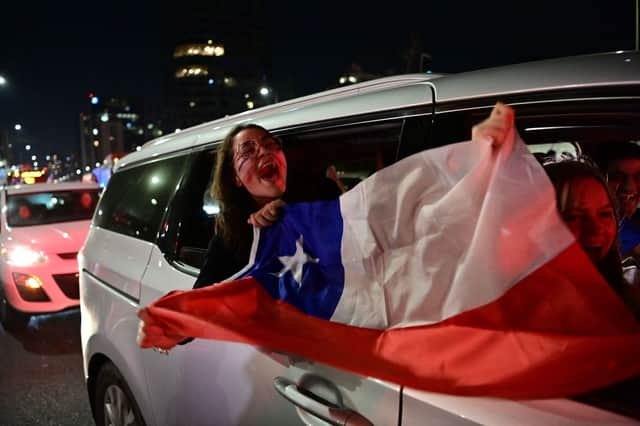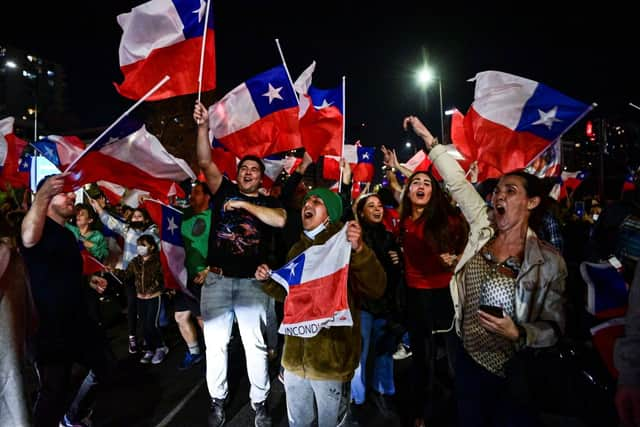Chile constitution: why charter was rejected in vote - what does it mean for Gabriel Boric and population?


Chile's leader has suffered a major blow as voters soundly rejected a new constitution intended to replace a 41-year-old charter imposed by dictator Augusto Pinochet.
President Gabriel Boric argued that the document would usher in a new era of progress.
Advertisement
Hide AdAdvertisement
Hide AdWith 99% of the votes counted in Sunday’s (4 September) referendum, the rejection side had 61.9% support to 38.1% for approval.
Voting on the matter was mandatory, leading to a high turnout of voters and long lines at polling stations. According to months of pre-election polling in the country of 19 million, the rejection was widely expected.
But what exactly was included in the new constitution, and what does its rejection by the population mean for the country?
Here is everything you need to know.
What did the new constitution contain?
The far-reaching new constitution would have fundamentally changed the South American country.
Advertisement
Hide AdAdvertisement
Hide AdThe vote concludes a three-year process that began in 2019, when the country, traditionally regarded as a model of stability in the region, erupted in student-led street protests.
Unrest was prompted by an increase in public transportation charges, but swiftly grew into larger demands for greater equality and social protections.
The following year, just under 80% of Chileans voted in favour of amending the country's constitution, which dated from Augusto Pinochet's military dictatorship from 1973 to 1990.


After months of work, delegates produced a 178-page document with 388 articles that, among other things, emphasised social issues and gender equality, sought to protect the country's Indigenous population, and prioritised the environment and climate change.
Advertisement
Hide AdAdvertisement
Hide AdIt also included provisions for free education, health care and housing.
The current constitution is a market-friendly document that favours the private sector over the state in areas such as education, pensions and health care.
It also makes no mention of the country's Indigenous population, which accounts for nearly 13% of the country's 19 million inhabitants.
Why was it rejected?
In the midst of the anti-establishment sentiment of the unrest that acted as a catalyst for change, people from outside the established political system were chosen to design the new constitution.
Advertisement
Hide AdAdvertisement
Hide AdIt was also the first in the world to be written by an equal number of male and female delegates.
But Chileans had since grown sceptical of the constituent assembly that produced the proposed charter, as a majority of delegates were not linked with a political party.
What happens now?
What exactly happens next remains to be seen.
The outcome is a big setback for Boric, Chile’s youngest president at 36-years-old.
The president had tied his fortunes so firmly to the new document that many experts speculated some voters may have interpreted the vote as a referendum on his government; approval ratings in Boric have been falling since he took office in March.
Advertisement
Hide AdAdvertisement
Hide AdChilean political leaders of all stripes agree that the country's constitution - brought in by its 1973 - 1990 dictatorship - must be changed.
That’s a sentiment shared by many citizens, with the majority supporting amending the dictatorship-era constitution.
However, Chileans had grown sceptical of the proposed replacement charter, as it was produced by a constituent assembly in which a majority of delegates were not linked with a political party.
Boric has stated that the process of amending the constitution will not end with Sunday’s vote, and said that leaders must “work with more determination, more dialogue, more respect” to establish a new proposed charter “that unites us as a country”.
But the method for drawing up a new plan has yet to be decided, and will most certainly be the topic of hard-fought negotiations between the country's political leaders.
Comment Guidelines
National World encourages reader discussion on our stories. User feedback, insights and back-and-forth exchanges add a rich layer of context to reporting. Please review our Community Guidelines before commenting.
